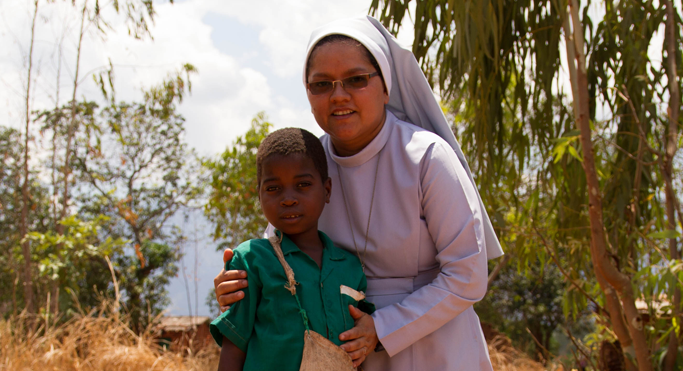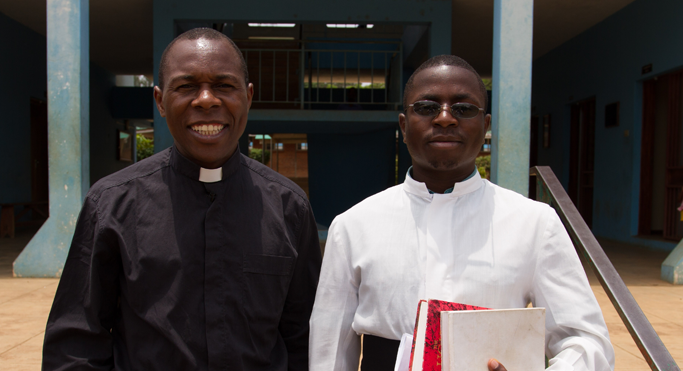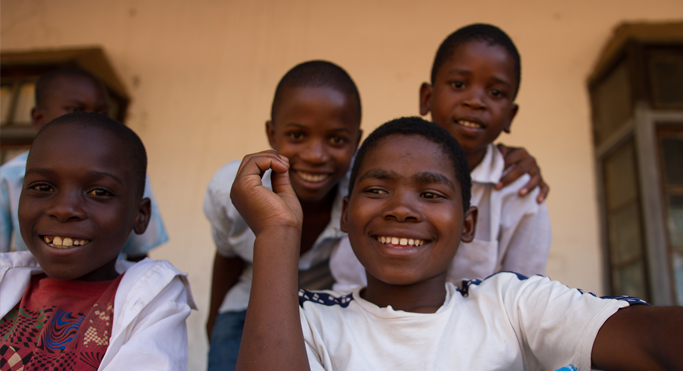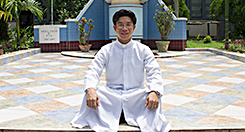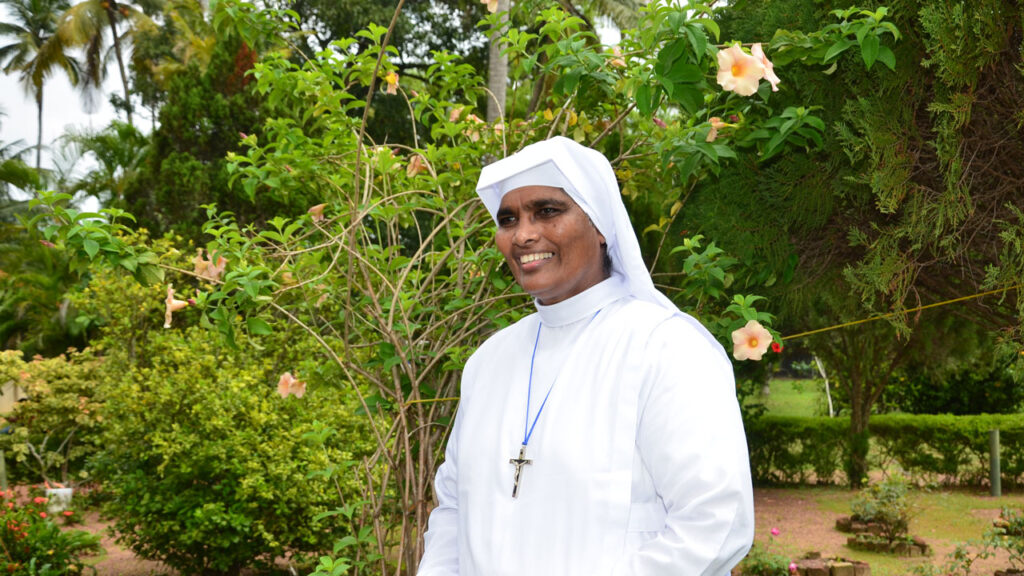It’s five years ago this week since His Holiness Pope Francis wrote his encyclical about the damage we’re doing to our planet – and the ways in which that hurts the poorest people the most.
Laudato Si’ urges that:
‘we have to realize that a true ecological approach always becomes a social approach; it must integrate questions of justice in debates on the environment, so as to hear both the cry of the earth and the cry of the poor.’
We can learn from each other
Missionaries who serve poor communities are well aware of these problems. They see first-hand that when people are poor, floods, droughts and pollution create a struggle for survival, denying people their basic human rights and essential needs.
But by their way of life, resourcefulness and creativity, many of Missio’s Church partners teach us so much about living more in harmony with the earth. Consciously or not, they embody Laudato Si’ in their daily lives.
‘Young people demand change’
St John’s Care Home in South Africa cares for 29 children. The three missionary Sisters who run the home are from a Franciscan order. So perhaps it’s no wonder that they encourage the children they look after to be mindful of creation and to care for all living things.
Many of the children shared with us that natural science is their favourite school subject. One young resident, Johannes, told Missio:
‘Nature makes me happy. In springtime I like to see the flowers bloom up. At school I like to learn about nature and our bodies. When I’m older I’d like to become a doctor. When people are sick, I’d tell them they have to take their medicine.’
Like all the children at St John’s, Johannes has learned to garden, plant, and care for the earth. Protecting their environment, whether that is maintaining the borehole which supplies their clean water or growing healthy food, is a core value which the Sisters are passing on to the next generation.
St John’s features in our Together In South Africa campaign, which you can find on Missio’s children’s website, Mission Together>>
‘The intimate relationship between the poor and the fragility of the planet’
When floods devastated Sr Kanthini’s community in Sri Lanka, she and her fellow Sisters began collecting food and essentials for families left destitute.
But because of the floods, there were more crocodiles and snakes in the water. Families were stranded, and many Sisters understandably frightened to brave the floods. Sr Kanthini was undaunted however. Nature would do what it would, and so would she. She loaded supplies onto a raft, and paddled down the flooded and dangerous river to deliver vital aid. She said ‘I’m older, I’ve lived my life. What will happen, will happen’. Happily, she survived the dangers, and brought essential supplies and a huge helping of God’s love to many families in need.
This amazing lady shows her vocation for the earth and for humanity every day. She has also worked tirelessly to find families for children orphaned during Sri Lanka’s long civil conflict. And she has supported the rights of poor fishermen when industrial development threatens their livelihoods by polluting and damaging their fishing areas. Because of the voices of people like Sr Kanthini, the Church in Sri Lanka was able to protect both the waters and the people who rely on them for survival.
In times of crisis, the Church is often the first to respond. Can you help us support our partners overseas as they bring vital help and hope to their communities? Donate today>>
‘Everything is interconnected’
In the midst of the Coronavirus pandemic, The anniversary of Laudato Si’ reminds us that environmental problems were already disrupting life for so many of our poorest sisters and brothers, and will affect all of us in the future if we don’t act.
We learned from our partners in India that before the Coronavirus lockdown, children were already being kept home from school and lung diseases were rife because air pollution was so bad. Since lockdown, pollution had cleared so much that citizens in Delhi could see the Himalayas for the first time in decades.
Meanwhile, our partners in Tanzania have shared how much more difficult floods in areas of the country were making the response to and containment of the virus virtually impossible for people. Their homes have been destroyed and there is no running water available. Whether we can see positive or negative effects, we have to acknowledge how much we depend on our environment for our health and survival. As Laudato Si’ says:
‘We have forgotten that we ourselves are dust of the earth (cf. Gen 2:7); our very bodies are made up of her elements, we breathe her air and we receive life and refreshment from her waters.’
Our lives, our health and our futures are planted in the earth itself. Neither the economic hardships of lockdown nor the crippling pollution of ‘business as usual’ is an acceptable future. As this crisis progresses and passes, we can learn from our missionary sisters and brothers, and the people they serve. We can create a new future: a path in which we cherish and nurture both planet and people.
In areas of extreme weather, poverty and a lack of clean water, people are most vulnerable to the added strain of the Coronavirus pandemic. Please help Sisters and Priests around the world as they reach out with love and support. Donate here>>


